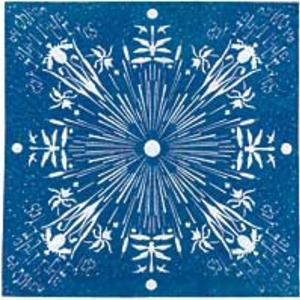Ed Askew Little Eyes
Ed Askew Little Eyes
Release Date October 9, 2007
Catalog No 76036
An interesting, and undoubtedly unconscious, competition has cropped up amongst indie record labels over the last five years or so. With the success of the re-releases of long lost albums by artists like Vashti Bunyan and Sibylle Baier, a number of labels have been shaking trees and digging beneath porches to try to find the rarest works to slip into the tea of the record buying public.
As you might expect, the smaller the label, the more interesting the music they seem to dig up. Case in point: De Stijl Records giving the world their first chance to hear the second album by the psych folk wonder, Ed Askew. The tiny New York label has been plying hungry listeners with obscure gems by the likes of Michael Yonkers and the Black Vial, but they scored their biggest coup yet by allowing this record to see the light of day, 30 years after it was first recorded.
At the time the album was recorded, Askew was signed to the venerable ESP label, the imprint that had released his brilliant work Ask the Unicorn. He recorded this album not long after the release of that album in 1969, but the label ran out of money and couldn’t put it out. Luckily, it couldn’t be a better time for Askew’s work to be reexamined by the intelligentsia of the music world. With the rise of interest in fellow outrÈ musicians Jandek and Daniel Johnston, Askew’s songs should find the audience it so richly deserves.
In fact, his work fits nicely alongside that of Johnston and Jandek. Not simply because he apparently recorded this album in one long continuous take, but also because, like those artists, his songs seem removed from a particular period of time. True, his reedy voice and copious use of harmonica give off Dylan-esque allusions, but the meandering arrangements and home-recorded haze of this album could have been recorded last week, rather than over 35 years ago.
Askew’s fractured romanticism lends a great deal to the feeling of timelessness the album exudes. His lyrics teem with imagery of the natural world, speaking often of trees, fields, and beaches, but they are thin metaphors for Askew’s brokenhearted worldview. Matched up with the gentle thrum of his Martin Tipple, a 10-stringed ukulele-shaped instrument, the album comes off like field recordings of an anguished hermit living in the woods with nothing but a head full of bad memories to keep him company.
This rough, yet beautiful piece of work may not get Askew covered in magazines throughout the world, nor will many of the big names in indie music touting him as an influence. Thankfully, we are now living in a world willing to open their ears up to the visions that Askew is spilling forth on Eyes and a likeminded label is willing to invest their time and money bringing these hidden masterpieces into the light of day.
